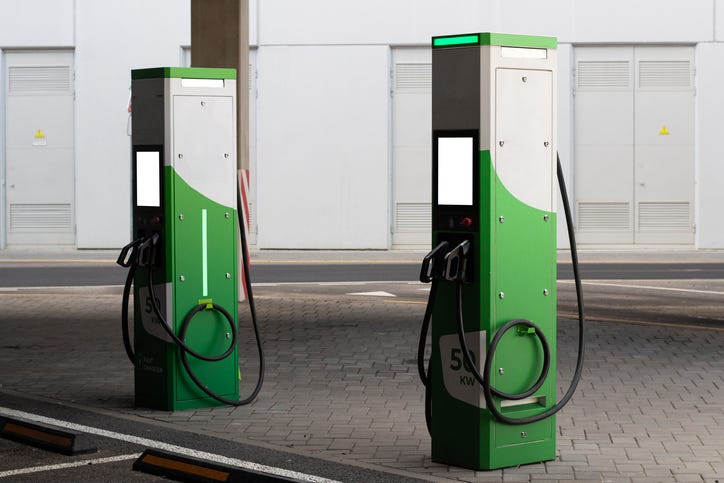
(WWJ) There's a lot of talk these days about a switch from old faithful combustion-powered cars to fully electric vehicles, with many drivers still hesitant to make the switch.
In Michigan, a statewide poll by the Detroit Regional Chamber and the Glengariff Group found that voters are polarized on the auto industry's transition to EVs, with around 46% of likely Michigan voters saying they support the shift, while around 44% said they oppose it.
Opinions were split along party lines, with Democrats largely supporting the shift, Republicans largely against it, and independents in between.
One major reason folks may resist trading their gas-guzzler for an EV, says WWJ AutoBeat Reporter Jeff Gilbert. is a lack of infrastructure.
"It's chicken and egg," Gilbert told WWJ's Brian Fisher for an episode of The Daily J podcast. "A lot of people aren't going to want to buy an EV until they know they can fuel it somewhere, and investors are going to be a little hesitant to install EV charging stations until they know they're going to have a market for it."
Looking to tackle the problem of not enough chargers is the U.S. government, which has announced the National Electric Vehicle Infrastructure Formula Program, or NEVI.
In short, it's a new funding opportunity resulting from the Bipartisan Infrastructure Law that will provide help states to strategically build out and expand public electric vehicle charging infrastructure.
As part of this plan, the Michigan will receive approximately $110 million to be administered by the Michigan Department of Environment, Great Lakes, and Energy (EGLE).
"Certainly, in terms of infrastructure that should definitely move the needle," said Sam Abuelsamid is a principal research analyst leading Guide. house Insights. "So, there's $7.5 billion that are available from this program, and that should be enough to deploy about another 500,000 charges across the United States."
For reference, he said there are currently about 50,600 public EV charging stations with just shy of 130,000 charging ports available.
"This funding will add another 500,000 to that," Abuelsamid said. "So, we're looking at four times, about 400% more charges than what have today — public charges."
Getting these new charges in place quickly is vital, Gilbert said.
"We're reaching a point of time where there's a critical mass in the arrival of new electric vehicle entries," Gilbert said. "The next couple of years we're going to see a lot more EV products getting on the road. So, we're speeding up the process, but still it's not a process that's going to happen overnight. But we're at the point now where there are enough electric vehicles that it's straining the infrastructure we have."
Another area of focus with NEVI: Spreading charging stations to underserved communities.
"It's one step in a several mile journey; but they're gonna build a lot of chargers. And what the government can do here is they can build those charges in places that may not necessarily be commercially viable," Gilbert said. "A commercial company that can make money off of them is going to put EV charging stations in places that a going to be popular, but we also need them in rural places, when you're going Up North. We need them in the inner city, where there may not be as much as an incentive to to put EV chargers. We need them in neighborhood where people live in apartments and may not necessarily charge in a garage at home."
Where are the EV chargers now? The public can find an interactive map, maintained by the U.S. Department of Energy, at this link.
Want The Daily J delivered right to you, every Monday-Friday? Subscribe wherever you get your podcasts, including on the FREE Audacy App.
